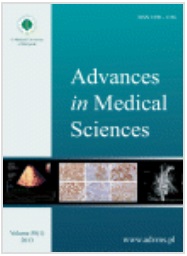In recent years, exceptional progress has been observed in pharmacogenetics, i.e. investigations of inherited conditioning of the organism's response to drugs or xenobiotics. On the other hand, modern molecular biology techniques have been implemented, making it possible to perform studies determining the involvement of genetic factors in differing responses to agents employed in general anaesthesia. Unexpected and incorrect response of the organism to the administration of specific anaesthetics is most commonly associated with a genetic defect of the metabolic pathway of a given agent or its receptor.
The majority of agents used in anaesthesia are metabolised in the liver by the cytochrome P450 superfamily enzymes (CYPs) and phase II drug-metabolising enzymes: glutathione S-transferases (GSTs), sulphotransferases (SULTs), UDP-glucuronosyltransferases (UGTs) and NAD(P)H:quinone oxidoreductase (NQO1). Propofol is presently widely used for gastrointestinal (GI) and several other procedures. Among genes associated with metabolism of the most commonly applied anaesthetics such as propofol and sevoflurane, the following ones can be mentioned: CYP2E1, CYP2B6, CYP2C9, GSTP1, UGT1A9, SULT1A1 and NQO1. Moreover, the basic mechanism of propofol action involves its interaction with an ionotropic receptor GABAA inhibiting transfer of nerve impulses. Molecular studies have shown that polymorphic changes in GABRG2 receptor gene turn out to be important in the propofol anaesthesia.
Planning of optimal anaesthesia can be considerably assisted by the determination of genetic factors of prognostic value taking advantage of genotyping and making it possible to select anaesthetics and reduce risk of side effects as well as undesirable actions.

